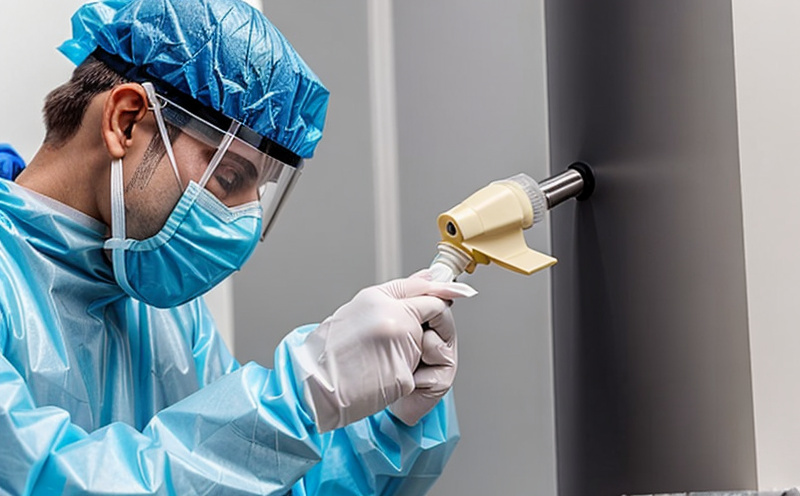Impact of solvent exposure on coating adhesion
The Critical Impact of Solvent Exposure on Coating Adhesion Why Businesses Cant Afford to Ignore It
In the world of surface coating and finishing, adhesion is a crucial aspect that can make or break the performance and lifespan of any material. However, numerous factors can compromise this delicate bond between the coating and substrate, with solvent exposure being one of the most significant culprits. At Eurolab, our team of experts understands the intricacies of coating adhesion and offers a comprehensive laboratory service to assess and mitigate the effects of solvent exposure on coatings.
What is Solvent Exposure on Coating Adhesion?
Solvent exposure refers to the impact of organic solvents on the adhesion between a coating and its substrate. When a coated material is exposed to solvents, either during application, storage, or in-service, it can lead to a weakening of the bond between the coating and the underlying surface. This phenomenon is often observed in industries where materials are subjected to chemical exposure, such as automotive, aerospace, construction, and electronics.
The Importance of Understanding Solvent Exposure on Coating Adhesion
Businesses across various sectors can ill afford to ignore the effects of solvent exposure on coating adhesion. The consequences of inadequate bonding can be severe, including
Reduced lifespan Poor adhesion can lead to premature failure of coated materials, resulting in costly replacements and downtime.
Increased maintenance Failing coatings can compromise the performance and functionality of equipment, necessitating frequent repairs and overhauls.
Safety risks Inadequate adhesion can cause coating delamination, releasing hazardous substances into the environment or posing a risk to human health.
Advantages of Using Eurolabs Impact of Solvent Exposure on Coating Adhesion Laboratory Service
By partnering with Eurolab for our expert laboratory service, businesses can benefit from
Key Benefits
Improved coating adhesion Our comprehensive testing and analysis enable you to optimize your coating formulation and application processes, ensuring strong bonding between the coating and substrate.
Enhanced product performance By understanding the impact of solvent exposure on your coatings, you can develop materials with improved resistance to chemical degradation, extending their lifespan and reducing maintenance costs.
Compliance with industry standards Our laboratory service ensures that your products meet or exceed regulatory requirements, minimizing the risk of non-compliance and associated penalties.
Reduced testing time and costs Our expert team leverages state-of-the-art equipment and methodologies to accelerate testing cycles, saving you valuable resources and speeding up product development.
Additional Benefits
Customized testing solutions Eurolab offers tailored testing programs designed to meet the unique needs of your business, ensuring that our laboratory service is optimized for maximum efficiency.
Expert interpretation of results Our team provides in-depth analysis and guidance on how to address any adhesion-related issues, empowering you to make informed decisions about your coatings.
Timely delivery of reports We understand the importance of prompt reporting, delivering detailed results and recommendations within agreed-upon timelines.
Expertise You Can Trust
At Eurolab, our team consists of seasoned scientists with extensive experience in surface coating and finishing. We employ cutting-edge equipment and methodologies to assess the impact of solvent exposure on coating adhesion, ensuring that your products meet or exceed industry standards. Our laboratory service is designed to provide you with actionable insights, empowering you to refine your coating formulations and application processes.
QA Frequently Asked Questions about Impact of Solvent Exposure on Coating Adhesion
Q What types of coatings are most susceptible to solvent exposure?
A Coatings made from organic polymers, such as acrylics, epoxies, and polyurethanes, are particularly vulnerable to solvent exposure.
Q How can I prevent or mitigate the effects of solvent exposure on my coatings?
A Regularly monitor your coating formulations for susceptibility to solvents. Consider reformulating coatings with enhanced chemical resistance, adjusting application processes, and implementing robust storage and handling practices.
Q What are some common solvents that can compromise coating adhesion?
A Organic solvents like ethanol, acetone, and toluene are among the most common culprits of coating adhesion loss.
Conclusion
Understanding the impact of solvent exposure on coating adhesion is crucial for businesses seeking to ensure the reliability and performance of their products. Eurolabs expert laboratory service provides a comprehensive solution for assessing and mitigating these effects, empowering you to develop coatings with enhanced durability and lifespan. By partnering with us, you can reduce testing time and costs while ensuring compliance with industry standards.
Dont let solvent exposure compromise your coating adhesion any longer. Choose Eurolab as your trusted partner in understanding the critical impact of solvents on your coatings, and take the first step towards developing materials that meet or exceed your expectations. Contact us today to learn more about our laboratory service and how we can help you improve your coating adhesion.




